Search results
-
Video
Applying data standards to the harmonization of COVID-19 datasets from different sources
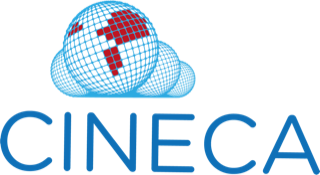 • beginnerData integration and warehousing Data integration Standards Standardised vocabulary data harmonization Ontologies
• beginnerData integration and warehousing Data integration Standards Standardised vocabulary data harmonization Ontologies -
Recorded webinar
BioStudies database: aggregating all outputs of a life sciences study
Literature and language Experimental design and studies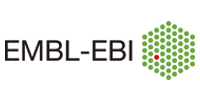
-
Introduction to Unix
Bioinformatics Programming Unixlinux
-
Using R with Python
Programming Python Python biologists
-
Parsing data records using Python programming
Bioinformatics Programming Python Python biologists Record parsing
-
Recorded webinar
Kew tree of life project: discovering the phylogeny of all flowering plants
Sequencing Whole genome sequencing
-
Bioinformatics approaches to Identify causative sequence variants in farm animals
Allbio Farm animals Qtl Rnaseq Transcription factors
-
e-learning
Calling variants in non-diploid systems
 • beginnerGenetic variation Genomics Sequence assembly DNA polymorphism Microbiology Sequence analysis Variant Analysis microgalaxy prokaryote
• beginnerGenetic variation Genomics Sequence assembly DNA polymorphism Microbiology Sequence analysis Variant Analysis microgalaxy prokaryote -
e-learning
Python - Introductory Graduation
 • beginnerSoftware engineering Foundations of Data Science jupyter-notebook
• beginnerSoftware engineering Foundations of Data Science jupyter-notebook -
Plant and Pathogen Bioinformatics
Allbio Bioinformatics Biological databases Genome sequence analysis Pathogenesis Phytopathogens Plants
-
Using ASAP for Single-Cell Analysis
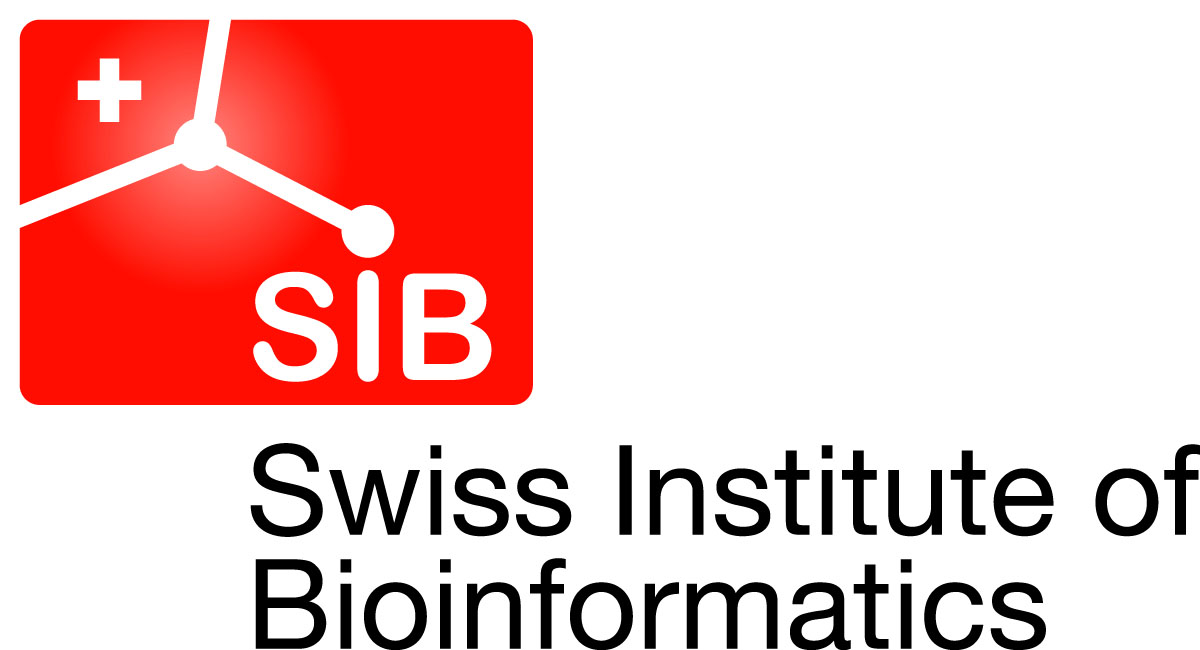 • beginnergenes and genomes biomarkers experimental biology functional genomics next generation sequencing population genomics single-cell biology training transcriptomics bart deplancke group
• beginnergenes and genomes biomarkers experimental biology functional genomics next generation sequencing population genomics single-cell biology training transcriptomics bart deplancke group -
Recorded webinar
Life cell by cell: Introduction to Single Cell Expression Atlas
Gene expression
-
e-learning
Creation of resources listing all the tools and their metadata relevant to your community
 • beginnerSoftware engineering CoDex Community Galaxy Community Building SIG
• beginnerSoftware engineering CoDex Community Galaxy Community Building SIG -
Video, Presentation
The essentials of DUO codes
Bioinformatics Genomics bioinformatics FEGA Federated EGA ELIXIR Converge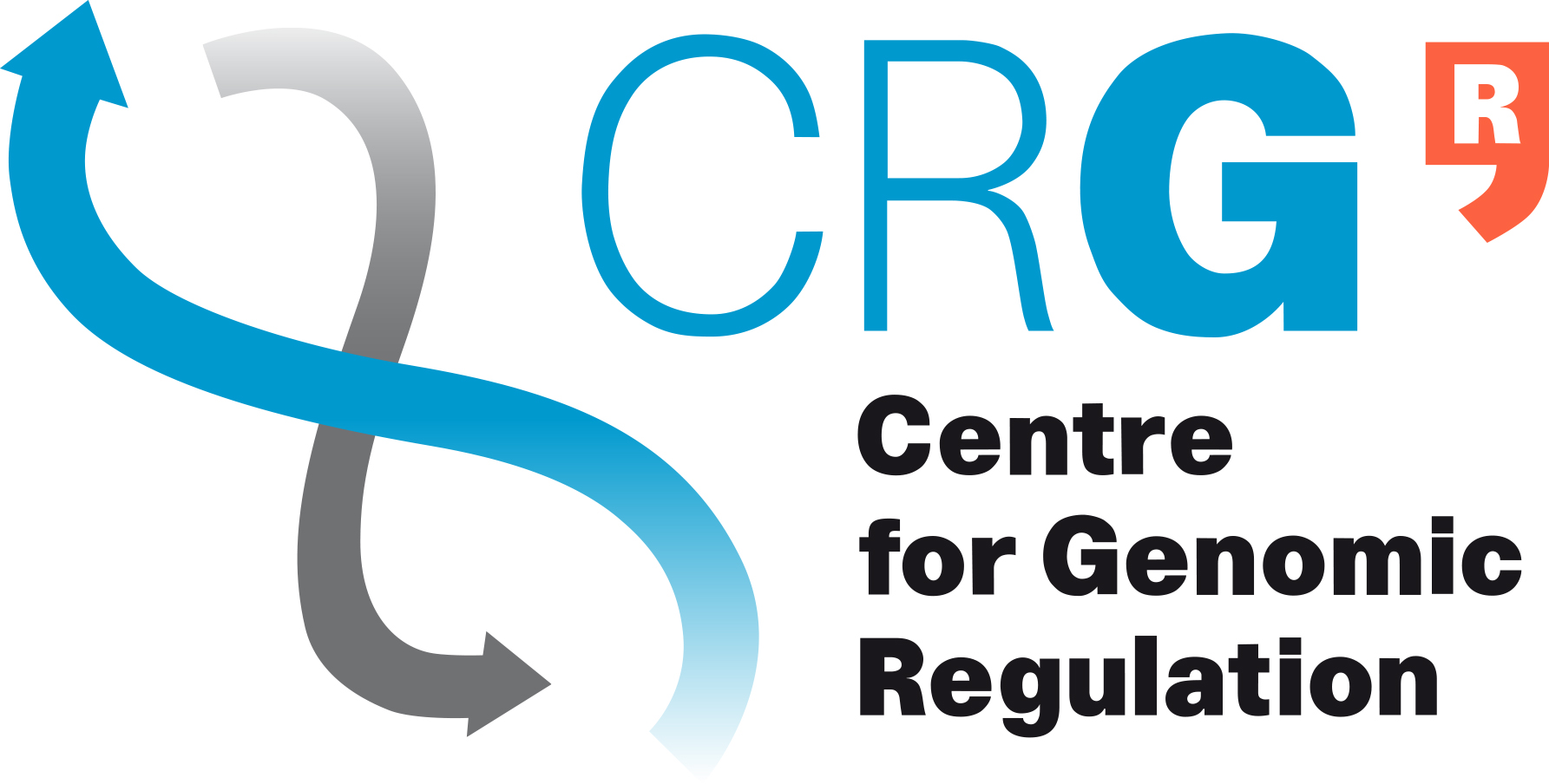
-
e-learning
Multisample Analysis
 ••• advancedUsing Galaxy and Managing your Data collections
••• advancedUsing Galaxy and Managing your Data collections -
e-learning
Creating, Editing and Importing Galaxy Workflows
 •• intermediateUsing Galaxy and Managing your Data workflows
•• intermediateUsing Galaxy and Managing your Data workflows -
e-learning
Using Workflow Parameters
 •• intermediateUsing Galaxy and Managing your Data workflows
•• intermediateUsing Galaxy and Managing your Data workflows -
e-learning
Python - Globbing
 •• intermediateSoftware engineering Foundations of Data Science jupyter-notebook
•• intermediateSoftware engineering Foundations of Data Science jupyter-notebook -
Enzymes: Extracting Biological Insight Using UniProt
 • beginner
• beginner -
e-learning
Workflow Reports
 •• intermediateUsing Galaxy and Managing your Data workflows
•• intermediateUsing Galaxy and Managing your Data workflows -
e-learning
Virtual Environments For Software Development
 •• intermediateSoftware engineering Foundations of Data Science jupyter-notebook
•• intermediateSoftware engineering Foundations of Data Science jupyter-notebook -
PSLS22 Practical Statistics for the Life Sciences
•• intermediate -
Computer Software, workflow
How to use V-pipe (SARS-CoV-2 data)
 • beginnerVirology Genetic variation Workflows Variant calling Alignment Read pre-processing coronavirus NGS bioinformatics Variant-calling
• beginnerVirology Genetic variation Workflows Variant calling Alignment Read pre-processing coronavirus NGS bioinformatics Variant-calling -
e-learning
Conda Environments For Software Development
 •• intermediateSoftware engineering Foundations of Data Science conda jupyter-notebook
•• intermediateSoftware engineering Foundations of Data Science conda jupyter-notebook -
e-learning
Annotate, prepare tests and publish Galaxy workflows in workflow registries
 •• intermediateFAIR Using Galaxy and Managing your Data workflows
•• intermediateFAIR Using Galaxy and Managing your Data workflows -
e-learning
Python - Functions
 • beginnerSoftware engineering Foundations of Data Science jupyter-notebook
• beginnerSoftware engineering Foundations of Data Science jupyter-notebook -
Mining enzyme data in UniProtKB using Rhea
 • beginnerbiochemistry data mining lipids ontology proteins and proteomes training alan bridge group
• beginnerbiochemistry data mining lipids ontology proteins and proteomes training alan bridge group -
e-learning
Introduction to SQL
 • beginnerSoftware engineering Foundations of Data Science SQL jupyter-notebook
• beginnerSoftware engineering Foundations of Data Science SQL jupyter-notebook -
e-learning
Automating Galaxy workflows using the command line
 • beginnerUsing Galaxy and Managing your Data covid19 variant-analysis workflows
• beginnerUsing Galaxy and Managing your Data covid19 variant-analysis workflows -
Gene Expression made Useful Easily: Tools and Database of Bgee
 • beginnerBgee genes and genomes evolution and phylogeny services and resources comparative genomics database curation data management data visualisation transcriptomics training …
• beginnerBgee genes and genomes evolution and phylogeny services and resources comparative genomics database curation data management data visualisation transcriptomics training …
-

GTN
The GTN is a global community of teachers, trainers, developers, administrators, and learners based around the Galaxy Platform!
For Learners
Our community provides over 370 high quality, peer-reviewed training materials...825 training materials40 events (26 past events)GTN https://training.galaxyproject.org/ https://tess.elixir-europe.org/content_providers/galaxy-training The GTN is a global community of teachers, trainers, developers, administrators, and learners based around the [Galaxy Platform](https://galaxyproject.org)! **For Learners** Our community provides over [370 high quality](https://training.galaxyproject.org/), peer-reviewed training materials from a global community of [330 instructors](https://training.galaxyproject.org/training-material/hall-of-fame/), with a focus on reproducibility and [FAIRness](https://training.galaxyproject.org/training-material/faqs/gtn/fair_training.html). **Not Just Galaxy** We've expanded our content to include data science, software development, and even alternative <abbr title="scientific workflow management systems">SciWMSs</abbr> like snakemake! **For Teachers** All of our materials are [FAIR](https://training.galaxyproject.org/training-material/faqs/gtn/fair_training.html), and we put a lot of effort into the platform's [accessibility for all audiences.](https://training.galaxyproject.org/accessibility.html). If you're interested in [contributing your own materials](https://training.galaxyproject.org/training-material/topics/contributing/) we'd love to help you share them with the world! Most of our materials are licensed CC-BY-SA so you're welcome to use these materials for your own course and classes! If you want to use a specific version of a material you may be interested in accessing them via [our archive](https://training.galaxyproject.org/archive/). **For Administrators** If you're a budding Galaxy Administrator, or an experienced one looking to catch up, the GTN is the source for all of those materials. We also work to make it easy for you as an admin to support tutorials on your infrastructure, you'll find a list of tools and their installation instructions at the bottom of every tutorial. /system/content_providers/images/000/000/078/original/GTN-400px.png?1718821926 -

Khan Academy Statistics
Can I pick a red frog out of a bag that only contains marbles? Is it smart to buy a lottery ticket? Even if we are unsure about whether something will happen, can we start to be mathematical about the "chances" of an event (essentially realizing that some things are more likely than others)....
32 training materialsKhan Academy Statistics https://www.khanacademy.org/math/probability https://tess.elixir-europe.org/content_providers/khan-academy-statistics Can I pick a red frog out of a bag that only contains marbles? Is it smart to buy a lottery ticket? Even if we are unsure about whether something will happen, can we start to be mathematical about the "chances" of an event (essentially realizing that some things are more likely than others). These tutorials will introduce us to the tools that allow us to think about random events. /system/content_providers/images/000/000/046/original/khan-logo-vertical-transparent.png?1469458451 -

NRIS
An important foundation for the successful collaboration on e-infrastructure in Norway is NRIS - a collaboration of five organisations to pool competencies, resources and services. The collaboration was until recently known as "the Metacenter".
NRIS consists of highly qualified IT staff at...
0 events (6 past events)NRIS https://www.sigma2.no/nris https://tess.elixir-europe.org/content_providers/sigma2-nris An important foundation for the successful collaboration on e-infrastructure in Norway is NRIS - a collaboration of five organisations to pool competencies, resources and services. The collaboration was until recently known as "the Metacenter". NRIS consists of highly qualified IT staff at the four universities NTNU, the Universities of Bergen, Oslo and Tromsø and employees at Sigma2, counting almost 50 people. The purpose is a geographically distributed competence network that ensures that all researchers who use the national e-infrastructure have quick and easy access to domain-specific support close to the user. /system/content_providers/images/000/000/635/original/NRIS-Logo.png?1653914194 -

COG-Train
COG-Train is an international educational initiative providing open-access learning in SARS-CoV-2 genomics. It aims to facilitate an increase in global genome sequencing and analysis capacity, reduce sequencing inequality and enhance pathogen surveillance.
The programme’s training courses and...
4 training materialsCOG-Train https://www.cogconsortium.uk/priority-areas/training/ https://tess.elixir-europe.org/content_providers/cog-train COG-Train is an international educational initiative providing open-access learning in SARS-CoV-2 genomics. It aims to facilitate an increase in global genome sequencing and analysis capacity, reduce sequencing inequality and enhance pathogen surveillance. The programme’s training courses and development are built around our core concept of partnering with international researchers, public health experts and surveillance networks and providing open-access FREE training for all. COG-Train is funded by Wellcome Trust and the Foreign, Commonwealth & Development Office and led jointly by COVID-19 Genomics UK (COG-UK) consortium and Wellcome Connecting Science (WCS). Whole Viral Genome sequencing is an essential tool to identify and track the emergence and spread of SARS-CoV-2 variants as the COVID-19 pandemic progresses. Sequence data informs public health interventions and the further development of diagnostics, therapeutics and vaccines. There is inequity of access to pathogen sequencing worldwide, and COG-Train is committed to contributing towards efforts that close this gap. By building global partnerships with sequencing networks and scientists around the world, we hope to build a truly inclusive training programme that shares the many challenges faced in sequencing efforts, as well as highlighting the numerous success stories, and facilitating knowledge sharing. Outputs include a series of massive online, open-access courses on all aspects of SARS-CoV-2 sequencing based on WCS’s successful use of the FutureLearn platform, as well as week-long intensive virtual training courses, short expert workshops and concurrent distributed Classrooms, the latter of which utilises blended training. The distributed classroom model will be used to increase reach and impact of the learning materials, with training being delivered simultaneously in multiple classrooms across many countries. The training programme includes train-the-trainer components to help further build capacity in-country, rather than rely on a one-hit train and leave model. The COG-Train educational programme builds on the COG-UK values of data sharing, open collaboration, value for money, inclusivity and the prioritisation of public health impact. /system/content_providers/images/000/000/644/original/COG-Train_Logo.png?1657104279 -

Proteomics Academy
EuPA Educational Committee
The EuPA Educational Committee supports educational initiatives in proteomics. Our aim is to make proteomics techniques affordable to all. We designed this website to provide the scientific community with free and open educational material.
EuBICThe European...
4 training materials0 events (1 past event)Proteomics Academy http://www.proteomics-academy.org/ https://tess.elixir-europe.org/content_providers/proteomics-academy EuPA Educational Committee The EuPA Educational Committee supports educational initiatives in proteomics. Our aim is to make proteomics techniques affordable to all. We designed this website to provide the scientific community with free and open educational material. EuBIC The European Bioinformatics Community (EuBIC) is a EuPA initiative for user-oriented bioinformatics. Our aim is to improve bioinformatics through the set-up of community driven dynamics improving the funding, publication, and work in user-oriented bioinformatics. In order to better disseminate bioinformatics among the scientific community, we also distribute educational material freely through this website, organize teaching, and a yearly conference. We function on a spontaneous voluntary basis, anyone is free to join, just contact us to stay tuned on the latest events! The Proteomics Academy is a joint effort of the European Proteomics Association (EuPA) educational committee and the European Bioinformatics Community (EuBIC) initiative. Our aim is to foster interaction between scientists interested in proteomics in an open, constructive, and collaborative way. We will be happy to answer your questions, receive your suggestions, and we welcome anyone wanting to join this community effort! /system/content_providers/images/000/000/064/original/97d05c_c3fb133973c34e318b81d122091dd238.png?1484056294 -
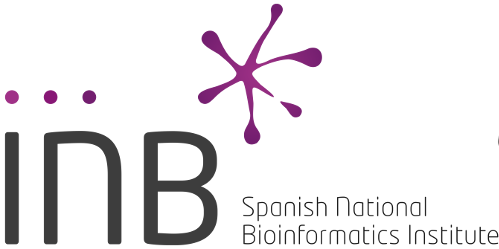
INB: Spanish National Bioinformatics Institute
The Spanish National Bioinformatics Institute (‘Instituto Nacional de Bioinformática’ in Spanish, or short INB), founded in 2003 following the decentralized model of nodes of the Swiss Institute of Bioinformatics (SIB), is the bioinformatics technology platform of the Carlos III Health Institute...
0 events (14 past events)INB: Spanish National Bioinformatics Institute https://inb-elixir.es https://tess.elixir-europe.org/content_providers/inb-spanish-national-bioinformatics-institute The Spanish National Bioinformatics Institute (‘Instituto Nacional de Bioinformática’ in Spanish, or short INB), founded in 2003 following the decentralized model of nodes of the Swiss Institute of Bioinformatics (SIB), is the bioinformatics technology platform of the Carlos III Health Institute (‘Instituto de Salud Carlos III‘ or ISCIII) since January 2018. The INB has increased the participant nodes to 19 research groups distributed across 13 institutions in Spain. The two main overarching objectives are maintaining and increasing the alignment of the INB with ELIXIR (European Life Science Infrastructure for Biological Information) looking for deeper synergies, while increasing the translational capacity of the INB towards the Spanish National Health System (SNS). The INB serves in the coordination, integration and development of Spanish bioinformatics resources in projects in the areas of genomics, proteomics and translational medicine. It has contributed to the creation of a consistent computational infrastructure in the area of bioinformatics, participated in national and international genome projects, and trained bioinformatics users and developers. The INB is in a strategic position as an interface between developments at the national and international level by research centers, initiatives such as the Global Alliance for Genomics and Health (GA4GH), and organizations such as ELIXIR, and bioinformatic groups directly related to clinical practice. **Spain is member of ELIXIR since 2015, with the INB as the Spanish national node**. Within ELIXIR, the INB is responsible for the bioinformatics infrastructure offered by Spain, and therefore, should guarantee its alignment to the strategic areas put forward by ELIXIR. /system/content_providers/images/000/000/110/original/logoINB.png?1550073283 -

Danish National Health Data Science Sandbox
The Health Data Science Sandbox is a national project coordinated by the Center for Health Data Science at the University of Copenhagen. Advisors and project data scientists are located at five Danish universities. We are building a data science sandbox for students and...
5 training materialsDanish National Health Data Science Sandbox https://hds-sandbox.github.io https://tess.elixir-europe.org/content_providers/danish-national-health-data-science-sandbox The Health Data Science Sandbox is a national project coordinated by the [Center for Health Data Science](https://heads.ku.dk/) at the University of Copenhagen. Advisors and project data scientists are located at five Danish universities. We are building a data science sandbox for students and researchers that contains non-person-sensitive datasets spanning key health data domains – electronic health records, omics data such as genomics and transcriptomics, images, and wearable device data. Datasets are sourced from public databases or generated via privacy-preserving approaches to synthetic health data. We are building modules that pair topical datasets with recommended analysis tools, pipelines, and learning materials/tutorials in a portable, containerized format. Our initial aim is to support university courses and programs in health data science and personal medicine, with broader environment access for researchers and university students planned in the future. Our sandbox for exploring health data science techniques will allow low-stakes guided learning and development followed by a smooth transition to a secure environment where users’ knowledge and tools can be applied to sensitive data. The sandbox environment is hosted on Danish supercomputers providing compute power while modules are publicly accessible on [GitHub](https://github.com/hds-sandbox). We thank the Novo Nordisk Foundation for funding support via the Data Science Research Infrastructure initiative. /system/content_providers/images/000/000/669/original/logo.png?1678825482
